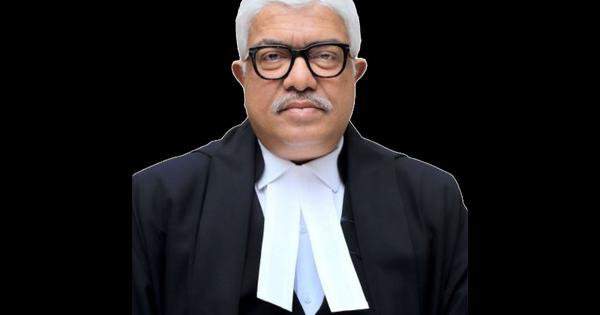
On Wednesday, the Supreme Court of India announced that it had modified its earlier recommendation regarding the transfer of Justice Atul Sreedharan, following a request from the Union government.
Earlier in August, the Supreme Court collegium had proposed transferring Justice Sreedharan, one of the senior-most judges of the Madhya Pradesh High Court, to the Chhattisgarh High Court. However, within a month, the Modi government sought a reconsideration of that decision. Complying with the request, the collegium revised its recommendation, transferring Justice Sreedharan to the Allahabad High Court instead.
While no explanation has been provided by either the collegium or the government for this abrupt change, this now means that Sreedharan will be a junior judge and will not be part of the collegium that selects new judges.
This incident underscores the opacity and possible executive interference that continue to cloud the system of judicial transfers and appointments in India.
A pro-liberty judge
Justice Sreedharan has earned a reputation as a judge who sticks to the rules. Appointed as a permanent judge of the Madhya Pradesh High Court in 2018, in 2023 he requested a transfer to the Jammu & Kashmir and Ladakh High Court, citing a conflict of interest as his daughter practised law in Madhya Pradesh.
However, in March, just a month before he was set to take charge as Chief Justice of the J&K High Court, he was transferred back to Madhya Pradesh. Upon his return, Justice Sreedharan became one of the senior-most judges and a member of the High Court’s collegium, known for his pro-civil rights outlook and penchant for issuing suo motu orders, even in politically sensitive cases.
Lawyers Scroll spoke to said his frequent transfers were likely a result of his judicial record that often rubbed the government the wrong way.
In July 2024, while at the J&K High Court, Justice Sreedharan quashed a preventive detention order issued under the Jammu & Kashmir Public Safety Act, 1978, calling it “twisted reasoning” by the District Magistrate, Jammu. He imposed a ₹10,000 personal fine on the officer, describing the detention as “unjustifiable.”
Earlier, in November 2023, he headed a bench that granted bail to the editor of The Kashmir Walla after 21 months in custody, quashing several charges including one of terror conspiracy.
In July, back in Madhya Pradesh, Justice Sreedharan commented on the relationship between the higher and lower judiciary likening it to that of “serfs under feudal lords.” He lamented that fear and subjugation had deeply pervaded the judicial system, often leading to unjust bail denials and wrongful convictions.
In August, he took suo motu cognisance of communal remarks made by BJP Minister Vijay Shah against Colonel Sofiya Qureshi, an Indian Army spokesperson during Operation Sindoor. He directed the police to register an FIR within four hours. The Supreme Court then stepped in to stay the proceedings, letting the minister off with only an apology.
Most recently, on October 14, Justice Atul Sreedharan took suo motu cognisance of a video circulated by several YouTube news channels, which showed a young man from a backward caste community being forced to wash a Brahmin man’s feet inside a temple and then drink the run-off as punishment for a so-called caste transgression.
“Each caste has become vociferous and ultra-conscious of its caste identity and leaves no measure unturned to demonstrate his/her pride of belonging to a particular caste,” Sreedharan had observed in the order. “This is giving rise to several instances of caste violence. The victims in most cases are the least literate and most impoverished economically.”
Cutting him down
Justice Sreedharan’s transfers have consistently curtailed his institutional influence.
In Jammu and Kashmir, he was next in line to become Chief Justice, but was transferred back to Madhya Pradesh just weeks before his elevation. In Madhya Pradesh, as one of the senior-most judges and a member of the High Court collegium, he held a significant voice in recommending judicial appointments and promotions.
The High Court collegium, comprising the Chief Justice and the two senior-most judges of the court, is responsible for recommending names for judicial appointments, elevations, and transfers within that High Court.
Had Justice Sreedharan been transferred to Chhattisgarh, he would have remained part of the High Court collegium. But with the latest modification of his transfer to Allahabad, he will now rank seventh in seniority, effectively removing him from the High Court collegium and ending his role in judicial appointments.
Punishment posting
Sreedharan’s frequent transfers, which have ended up curtailing his power within the judicial system, have led to concerns about the extent of executive control over India’s higher judiciary.
A lawyer from Madhya Pradesh remarked that Sreedharan’s frequent transfers were a result of his pro-civil rights rulings. “Justice Sreedharan appeared to be paying the price for being an active, outspoken, and fearless judge,” they said. “He has been very active since his return to Madhya Pradesh and has been vocal about his viewpoints against governmental authorities.”
The pattern in the transfers was apparent, another lawyer practising in Madhya Pradesh told Scroll. “This was the third transfer in the past 10 months,” they pointed out. “Every time a transfer was made, he was losing his seniority. This clearly suggests the Centre’s intention.”
A senior lawyer from Delhi suggested that the Centre may have been apprehensive about Justice Sreedharan’s posting to Chhattisgarh, a region affected by Naxalite activity given his pro-civil rights approach. The concern, the lawyer said, was that Justice Sreedharan would not hesitate to decide “fearlessly and independently”, even in matters sensitive to the government.
Pulling strings
Advocate Sanjoy Ghose, practising in Delhi, pointed out that the collegium itself had passed the buck to the Modi government.
“The lack of transparency on the part of the collegium in this transfer can only lead to speculation that there is a link between the actions of the judge in ensuring accountability of the minister [Vijay Shah] and the subsequent transfer of the same judge,” he said. “The situation also is aggravated by the unusual statement of the collegium, where it is stated that this action of reconsidering the transfer from Chhattisgarh to Allahabad is prompted by a request received from the government.”
Advocate Ashish Goel, from Delhi, agreed with Ghose. “Justice Sreedharan’s repatriation and transfer are punitive, but what we cannot overlook is how easy it is for the executive to influence the working of the collegium,” Goel told Scroll. “As things stand today, it is ultimately the executive that decides which judge is to perform (or not perform) administrative roles in which High Court. The pattern is clear.”
This, in turn, raises serious questions about India’s collegium system of appointments and transfers. “This is not the first time that collegium’s complicity with a powerful executive has compromised judicial independence,” Goel said. “We have recent examples in Akil Kureshi and S Muralidhar. I don’t think Justice Sreedharan’s case is going to be the last. We just cannot trust the collegium with judicial independence.”
📰 Crime Today News is proudly sponsored by DRYFRUIT & CO – A Brand by eFabby Global LLC
Design & Developed by Yes Mom Hosting






